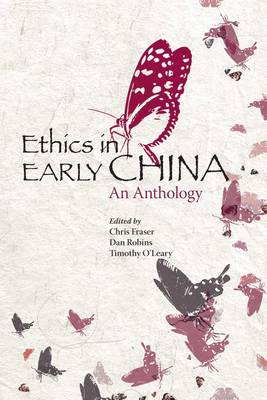
- Afhalen na 1 uur in een winkel met voorraad
- Gratis thuislevering in België vanaf € 30
- Ruim aanbod met 7 miljoen producten
- Afhalen na 1 uur in een winkel met voorraad
- Gratis thuislevering in België vanaf € 30
- Ruim aanbod met 7 miljoen producten
Zoeken
€ 34,95
+ 69 punten
Omschrijving
Early Chinese ethics has attracted increasing scholarly and social attention in recent years, as the virtue ethics movement in Western philosophy sparked renewed interest in Confucianism and Daoism. Meanwhile, intellectuals and social commentators throughout greater China have looked to the Chinese ethical tradition for resources to evaluate the role of traditional cultural values in the contemporary world. Publications on early Chinese ethics have tended to focus uncritical attention toward Confucianism, while neglecting Daoism, Mohism, and shared features of Chinese moral psychology. This book aims to rectify this imbalance with provocative interpretations of classical ethical theories including widely neglected views of the Mohists and newly reconstructed accounts of the "embodied virtue" tradition, which ties ethics to physical cultivation. The volume also addresses the broader question of the value of comparative philosophy generally and of studying early Chinese ethics in particular. Contributors include Roger T. Ames, Stephen C. Angle, Jiwei Ci, Chris Fraser, Jane Geaney, William Haines, Chad Hansen, Manyul Im, Philip J. Ivanhoe, Franklin Perkins, Lisa Raphals, Dan Robins, Henry Rosemont, Jr., David Wong, and Lee Yearley.
Specificaties
Betrokkenen
- Auteur(s):
- Uitgeverij:
Inhoud
- Aantal bladzijden:
- 312
- Taal:
- Engels
Eigenschappen
- Productcode (EAN):
- 9789888028931
- Verschijningsdatum:
- 6/09/2011
- Uitvoering:
- Paperback
- Formaat:
- Trade paperback (VS)
- Afmetingen:
- 150 mm x 226 mm
- Gewicht:
- 453 g

Alleen bij Standaard Boekhandel
+ 69 punten op je klantenkaart van Standaard Boekhandel
Beoordelingen
We publiceren alleen reviews die voldoen aan de voorwaarden voor reviews. Bekijk onze voorwaarden voor reviews.











